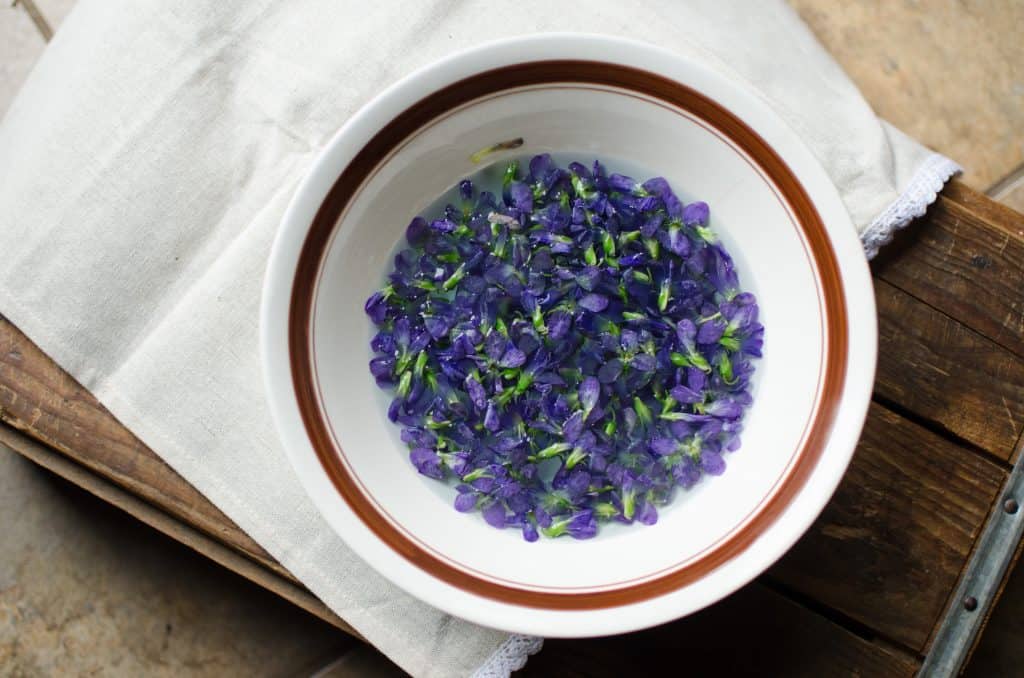
As an herbalist I get this question every single year—what are some good home remedies for seasonal allergies treatment? And while there are a lot of questions I’d have for each individual person about their allergies, there is a general tonic that you can create to help with natural seasonal allergies treatment—especially during hay fever season. Hay fever is one of the most common generic “allergies”. Old folks called it this for good reason because many times, children and adults alike would come in sneezing or have respiratory irritation during hay making season. This is often (and obviously) attributed to a grass allergy, however, it can be a number of different types of grasses instead of just regular field or yard grass.
In this article, we’re going over some of the basics of seasonal allergies. I’ll give you a seasonal allergy tonic that you can create and add to your home apothecary. And we’ll also go through each herb within the tonic a little more deeply.


Why Do We Have Seasonal Allergies?
Ok, so let’s get this out of the way. As an herbalist, I really can’t say “you should take this herb for your seasonal allergies and you’ll be all better”. Quite the contrary. Did you know that some seasonal allergies are actually a side effect of a different kind of allergy? Often times seasonal allergies are heightened due to a dairy, peanut, or grain allergy. In a 2018 study, a link between children and adults with food allergies and allergic rhinitis (seasonal allergies) was confirmed.
“In a study of French schoolchildren, Pénard-Morand et al. concluded that self-reported food allergies, food sensitisation and skin prick-tested food allergies were all significantly positively associated with allergic rhinitis; moreover, these associations persisted even when the food allergy did not result in any respiratory symptoms (P <0.001)”
Allergic Rhinitis in Relation to Food Allergies | Pointers to future research: Rashid Al-Abri et al.
There are certainly other underlying reasons that can also cause a person to be more susceptible to seasonal allergies, grass allergy, and hay fever season. One is simply genetics. Some families have more of a genetic predisposition for allergies than others. But the bigger factor to consider is your overall health—diet, exercise (or lack of), comorbidity (like diabetes, high blood pressure, etc), stress levels (a big one!), and environmental elements. This is why we, as herbalists, can’t necessarily say “take this miracle herb for seasonal allergies”, because everyone’s “seasonal allergy” can be very different.
Stress is the Number One Issue with Allergies
Believe it or not, stress can play a huge role on the human body. It’s one of the things that can make allergies worse, too. Have you ever noticed that one year your allergies may be non-existent, and another year they may be extremely worse? Many times that can be due to your stress levels. When your body is stressed, it has more prominent reactions to intruders it comes in contact with. This includes allergens. So, slow down! Take a nap. Get rid of unnecessary stress, relationships, and time suckers. You’re worth it!
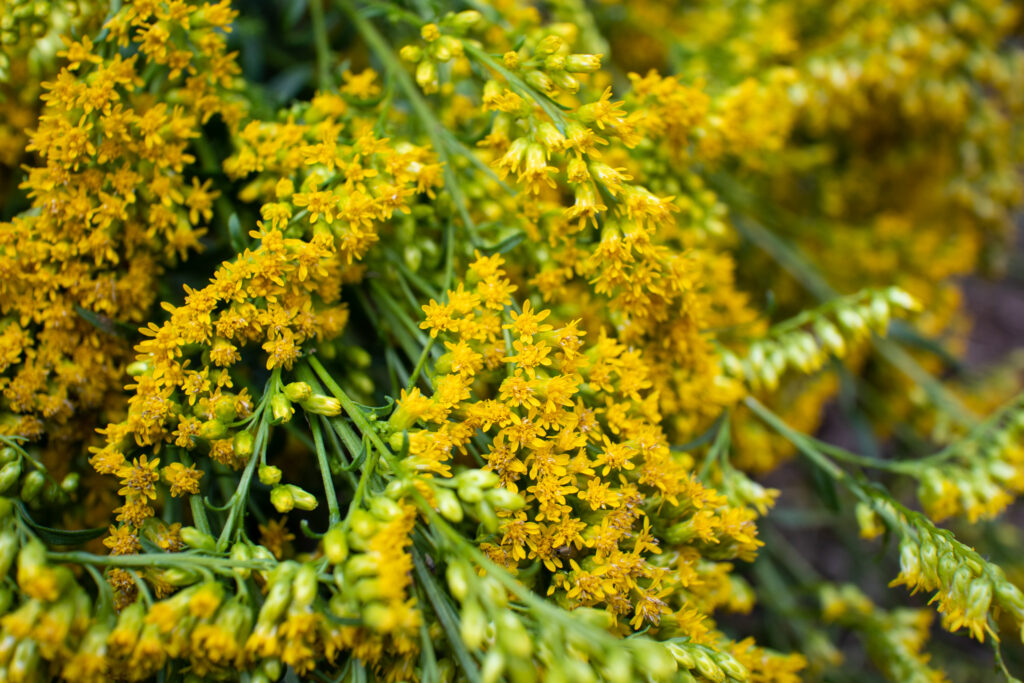
Herbs that Help with Seasonal Allergies
There are all kinds of herbs that can help with your seasonal allergies, just be careful that they don’t cause an even worse reaction than you’re currently having. For example, herbs in the Asteraceae family are often the same plants that make you have an allergic reaction each year. This includes herbs like chamomile, echinacea, dandelion, and goldenrod. Ragweed also falls into this category, however, most people are allergic to ragweed simply because of its genetic make up. It makes most people sneeze if in the nearby location of it, so I wouldn’t worry too much about that.
Let’s talk about the herbs I personally use and suggest, and that are in the recipe I’m providing to you in this article.
Goldenrod (solidago virgaurea)
Goldenrod is one of my absolute favorite wild herbs to forage for. It is absolutely beautiful and smells heavenly. Some of the medicinal uses of goldenrod are anticatarrhal (removes excess mucus from the respiratory tract), anti-inflammatory, antimicrobial, astringent, carminative (relieves flatulence), diaphoretic (causes prespiration), diuretic, and vulnerary (heals wounds).
Goldenrod is exceptional at alleviating upper respiratory congestion stemming from allergies, sinusitis, flu, or the common cold. What a lovely thing that a respiratory herb can be so readily available to forage! For an exceptional throat gargle, you can combine goldenrod with sage (Salvia officinalis) in an infusion to soothe sore throats, thrush, and laryngitis.
A lot of people think that goldenrod is ragweed when they see it on the side of the road. But it’s not ragweed at all. Don’t let this plant deter you from some relief during grass allergy and hay fever season.
You can learn much more in-depth about goldenrod in this blog post I wrote.
Stinging Nettle (Utica dioica)
There are various different nettles that can be foraged for, but stinging nettle seems to be the most proven to work with allergies. And yes, it really does sting. Some people enjoy the sting, and find it therapeutic if they have rheumatoid arthritis (it kind of numbs the hands). But I recommend using gloves when harvesting.
Stinging nettle has been used for centuries for various different things, but for the respiratory system, it has been used since before Greek times, especially for asthma. It has anti-inflammatory and anti-allergenic properties. In a 2017 study, it was shown that stinging nettle showed great decrease in allergic rhinitis symptoms. The perfect herb for hay fever season!
Stinging nettle is astringent, diuretic, tonic, and hypotensive. It is used frequently in many cultures as an overall health tonic, as it strengthens and supports the entire body.
Contraindications: Stinging nettle may reduce the efficacy of anticoagulant drugs.
Ma huang, ephedra (ephedra Sinica)
If you are in a country that can use this herb, I commend you. Welcome to the United States, where this herb is banned. That is why you’ll see that this herb is optional in the recipe I share with you. This herb, however, is commonly used with great results in Chinese medicine against seasonal allergies. Because it is banned in the United States, however, I won’t go into great detail about it. It also has several contraindications you should educate yourself about before using this seasonal allergies treatment.
If using Ma huang in this recipe below, add an additional ounce of vodka/bourbon to the recipe.
Goldenseal (hydrastis canadensis)
This herb can be quite controversial due to the fact that there isn’t much scientific evidence proving that it works. But this is where we put our folk herbalist hat on and look at the track record throughout history, and even in modern day communities. This herb root is used extensively for its immune stimulating, anti-inflammatory, and anti-allergen actions and components. It has also been used to prevent infections, which works well in preventing the co-infection of the sinuses during allergy season, making it a great seasonal allergies treatment herbal remedy.
Goldsenseal is bitter, hepatic, alterative, anticatarrhal, anti-microbial, anti-inflammatory, laxative, emmenagogue, and oxytocic. It has powerful effects on the mucus membranes in the body.
Contraindications: it is not recommended for use in people with high blood pressure. Prolonged use of high doses of goldenseal may decrease vitamin B absorption. Do not use during pregnancy, as it can cause uterine contractions.
Goldenseal should be avoided during pregnancy.
Eyebright (euphrasia spp.)
A 2014 study showed that eyebright showed exceptional abilities to calm irritated eyes that are inflamed by seasonal allergies. Eye drops made from eyebright are considered to be useful and safe in the treatment of ocular allergy symptoms as well.
Eyebright is anticatarrhal, astringent, and anti-inflammatory and is one of the most common remedies for when mucus membranes are having issues.
Contraindications: none known

Natural Seasonal Allergies Treatment with Herbs
While I can’t offer you specific advice—because I don’t know your specific allergy and issue—I can offer you a general, overall tonic that will get you started. This is what I recommend to most of my students and acquaintances when asked about seasonal allergies treatment or hay fever season. Anyone can make this simple tincture. The best part is, it lasts forever! Make a large batch the first time, and you’ll have it for years to come (or enough to share!)
2 oz goldenrod (solidago virgaurea)
2 oz nettle (Utica dioica)
1 oz goldenseal (hydrastis canadensis)
1 oz eyebright (euphrasia spp.)
27 fl oz 80-proof vodka or bourbon
METHOD
- In a large mortar and pestle, slowly combine your dried herbs until crushed sufficiently. If you are using fresh herbs, make sure they are cut up finely enough so the liquid can cover them completely.
- Pour herbs into a sterile glass mason jar (half-gallon size). Cover the herbs completely with the vodka or bourbon of choice. Make sure the herbs are submerged completely. If not, you can crush them more or use a fermentation weight. If using dried herbs that soak up a lot of liquid, you can add an additional ounce.
- Cap, label, and set the jar in a dark place (like a pantry or cabinet) for 4 to 6 weeks. Shake 1 to 2 times per day.
- After 4 to 6 weeks, strain the herbs from the liquid, and store the liquid in a glass amber bottle with an eyedropper. Label your remedy and store for up to 15 years in your pantry or cabinet, out of direct sunlight. It won’t last that long though if you are, of course, using it frequently!
How to use this herbal seasonal allergy tincture:
This remedy should really be used a month or two before allergy and hay fever season begin. Especially if you have a grass allergy. The good news is that this seasonal allergies treatment treats the whole body, not just any one specific allergy type. Anyhow, if you haven’t started this a month in advance, don’t worry, you’ll be ok!
Dosage & Frequency:
Take 5 ml of tincture three times a day until allergy season is over. Do this by placing the tincture under your tongue and allowing it to set for up to 60 seconds, but no less than 30 seconds, then swallow.
If you are taking this a month or two in advance, take 2.5 ml once a day for two weeks. Then 5 ml once a day for two weeks, and then finally work your way up to the 5 ml three times a day for the rest of the season. For adults, if necessary, you can take the 5 ml up to five times a day.
I hope you enjoy this seasonal allergies treatment and information about allergic rhinitis and hay fever season!
Other Posts You May Enjoy:
- Andrographis (Andrographis paniculata) for the Common Cold and Viruses
- Medicinal Uses of Goldenrod & Goldenrod Tincture
- The Best Antiviral Herbs and Viral Ailment Support Herbs
- Medicinal Uses of Mullein — Grow, Harvest, and Use
- Medicinal Uses for Yarrow—The Homestead Herb
- Yellow Rocket Cress—Wild Edible & Medicinal
Home Remedy for Seasonal Allergies
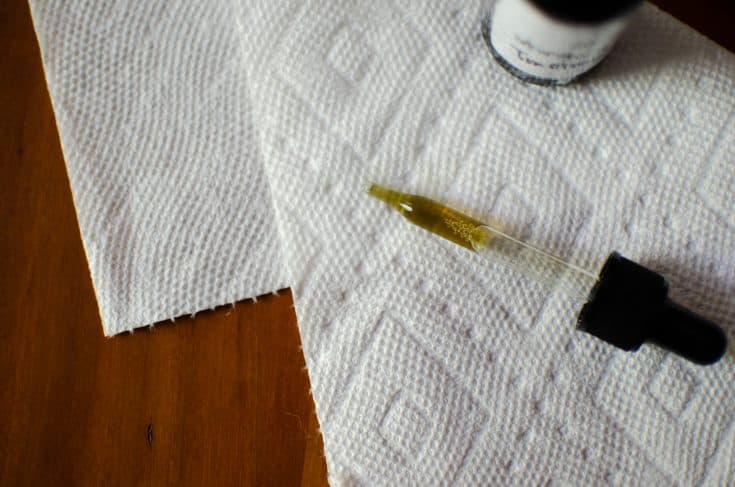
Ingredients
- 2 oz goldenrod (solidago virgaurea)
- 2 oz nettle (Utica dioica)
- 1 oz goldenseal (hydrastis canadensis)
- 1 oz eyebright (euphrasia spp.)
- 27 fl oz 80-proof vodka or bourbon
Instructions
In a large mortar and pestle, slowly combine your dried herbs until crushed sufficiently. If you are using fresh herbs, make sure they are cut up finely enough so the liquid can cover them completely.
Pour herbs into a sterile glass mason jar (half-gallon size). Cover the herbs completely with the vodka or bourbon of choice. Make sure the herbs are submerged completely. If not, you can crush them more or use a fermentation weight. If using dried herbs that soak up a lot of liquid, you can add an additional ounce.
Cap, label, and set the jar in a dark place (like a pantry or cabinet) for 4 to 6 weeks. Shake 1 to 2 times per day.
After 4 to 6 weeks, strain the herbs from the liquid, and store the liquid in a glass amber bottle with an eyedropper. Label your remedy and store for up to 15 years (uncontaminated) in your pantry or cabinet, out of direct sunlight. It probably won't last that long though, if you're using it regularly.

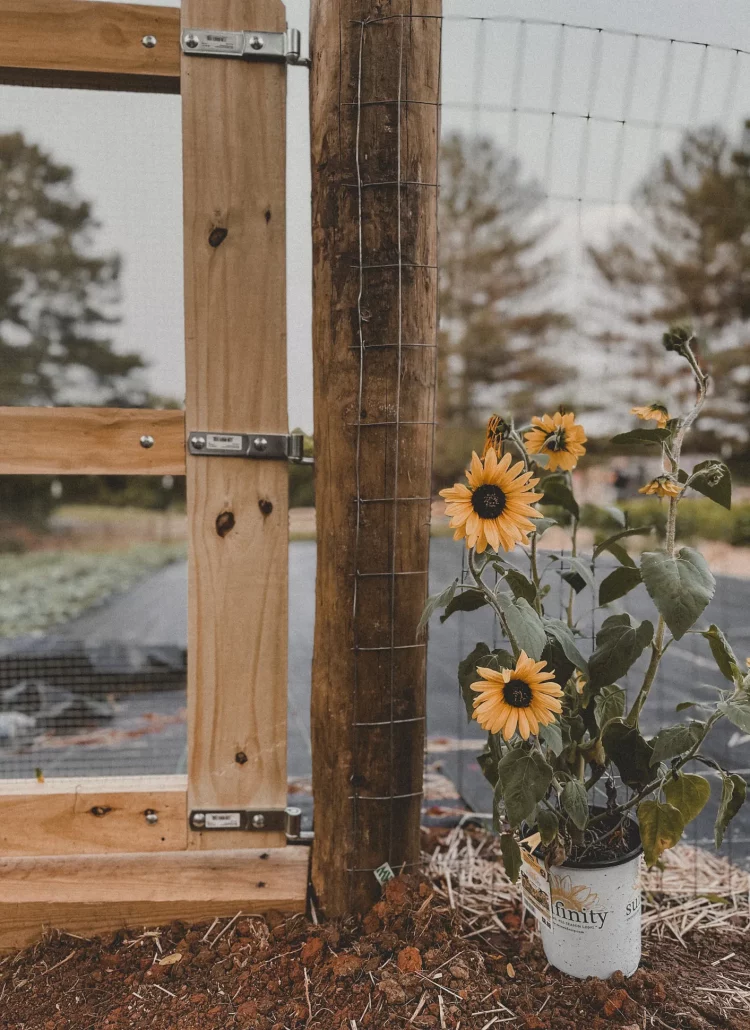
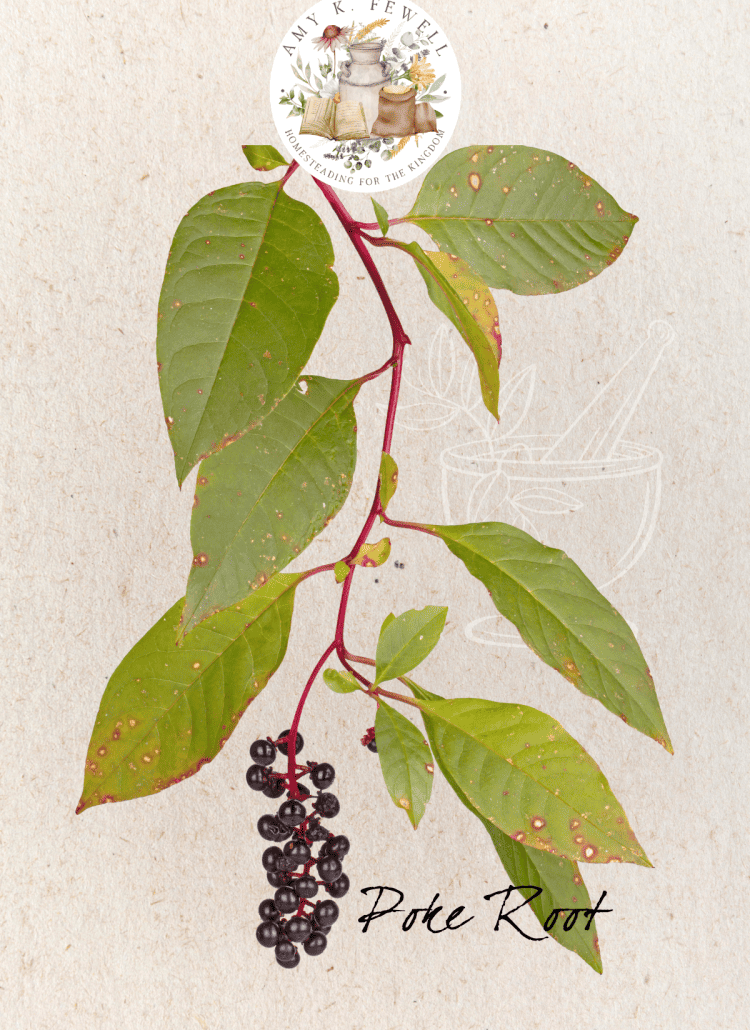
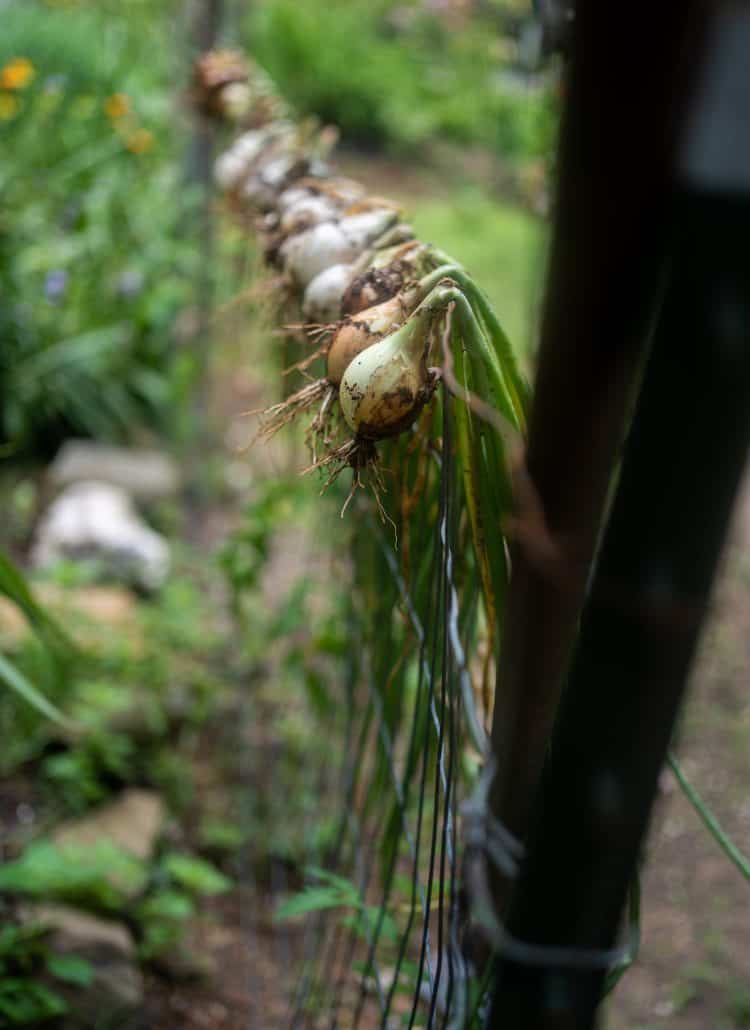

Hi Amy, thank you for a very interesting article.
This year has been my worst for allergy issues. Going outside at all right now causes big flair ups for me. I live in a city and am unable to pick these herbs in the wild. Do you know of a reputable source where I could purchase them?
Thank you for your assistance!
Tawny LaTourette
Very interesting! Thank you for sharing m!